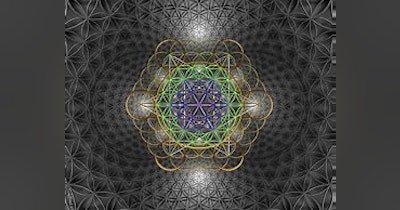The Bilderberg Meeting, a lesser-known assemblage of minds from varying fields designed to foster a greater understanding and camaraderie between the United States and Western European Nations. The meeting’s founding goal? Deterring the third Great War, World War III. At least, that was how it began.
Spurred on with the support of Influential European figures, such as the exiled Polish politician Józef Retinger, the first conceptualization of the Bilderberg Meeting found its way to the desk of President Eisenhower’s adviser, Charles Douglas Jackson. With the stamp of one of history’s bloodiest wars still fresh, a transatlantic conference was hard to pass by. Following the spirit of Noah’s Ark, two delegates were chosen from each nation, an arrangement designed to represent both conservative and liberal viewpoints. With the groundwork in place, the first Bilderberg Meeting was staged at the Bilderberg Hotel in late May of 1954.
The meetings operate under the Chatham House Rule, a statute assuring the free and fair use of any information spread during the meeting but without implicating or sharing the source. It is a rule named for the UK Royal Institute of International Affairs, where it was originally designed to bolster participant’s willingness to speak on perhaps unsavory topics.
However, this rule forbidding the naming of sources contributed to a distrustful eye being placed upon the meetings themselves. For what sorts of unsavory information was being disclosed between cultural leaders that would warrant such a rule? The fact that the meeting’s raison d'être, the promotion of Trans Atlanticism, revolved around cultural sharing yet operated with such secrecy, did not help with the suspicions of the group attempting to implement a “World Government.”
Nor did the words of Denis Healey, a Bilderberg found and Steering Committee member of over 30 years:
“To say we were striving for a one-world government is exaggerated, but not wholly unfair… We couldn’t go on forever fighting one another for nothing and killing people and rendering millions homeless. So we felt that a single community throughout the world would be a good thing.”
Although the exact statements and their origins aren’t fully transparent, it is known, at least in the public face, what the planned topics of discussion are. The 67th Bilderberg Meeting was held in the Summer of 2019 had 11 key topics of discussion listed below and had the participation of 23 countries.
- A Stable Strategic Order
- What Next for Europe?
- Climate Change and Sustainability
- China
- Russia
- The Future of Capitalism
- Brexit
- The Ethics of Artificial Intelligence
- The Weaponization of Social Media
- The Importance of Space
- Cyber Threats
The listed topics contain no subject that would be severely out of place in meetings held by other international organizations such as the United Nations. So why impose what is essentially a gag order upon the participants? While the Chatham House Rule has its logical rule when used in its namesake building, a location that is held by one country, it is a suspicious tradition for an international meeting to hold. Especially in the modern era of video transcripts and live streaming.
While the meeting’s stated, modern goal has become focused on bolstering a consensus around the free market and Western capitalism. It is understandable how statements like those made by Denis Healey, paired with the unprecedented lack of transparency of the meeting (at least by modern standards) could give rise to suspicions of the organization’s intentions.
What do you think is the reason for the continued implementation of the Chatham House Rule? Though its existence isn’t exactly concealed from the public, why is such an important event not given more attention? Send us your thoughts.














